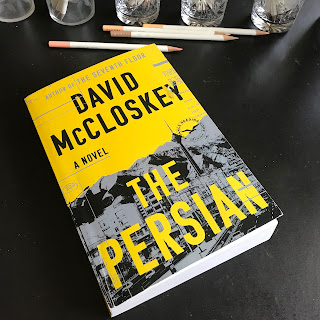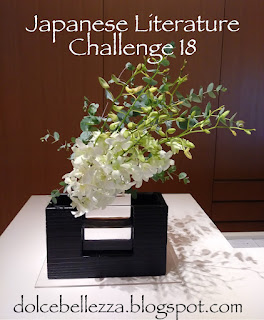 |
| “I am terrified of being bored.” |
It is in the knick of time that I complete this biography of a French woman, written by a German man, translated into English by British translators. Had I known that I was embarking upon a book of almost 600 pages (my edition is a pdf from Pushkin Press on my kindle), perhaps I would not have attempted it halfway through Paris in July 2025. But, I was riveted in Marie Antoinette’s life because no detail is too small for Stefan Zweig to record. He made this woman known to me in ways I never had, for he turns a factual, and sympathetic, eye onto her life.
He begins the picture of Marie Antoinette, youngest daughter of Maria Theresa, the Archduchess of Austria, with her life at the age of fourteen. We catch a glimpse of her childishness, her playfulness, her impetuous spirit that in no way seems prepared to marry Louis XVI and become the Queen of France. At the age of nineteen she ascended to the throne, still unprepared for what was required of her to lead her country.
She was still too young to know that life never gives anything for nothing, and that a price is always exacted for what Fate bestows.
Almost everyone knows the luxury which Marie Antoinette took for granted, as her right, and the price she had to pay for living such a self-centered life style. But, perhaps we do not know more detailed aspects of her life which Zweig portrays. Do you know, for example, very much about Little Trianon? This “playground” was created to fulfill her every whim, costing approximately 800, 000 livres at the time. She went there so often that the aristocracy in Versailles stopped coming to visit; the servants’ positions were no longer required with any regularity. And, her people suffered in their own lives while she blithely carried on with hers.
Zweig writes that she “wanted a ‘natural’ garden, a blamelessly innocent landscape, which must be the most natural of new-fangled natural gardens. With this end in view, she summoned to her aid the most noted, the most highly refined horticultural artists of the day, that, in the most artificial way possible, they might design and create for her an ultra natural garden.”
(I must admit that this reminded me so much of Disneyland: an artificial world, created at great expense, for nothing more than the amusement of its visitors. I cannot abide artifice any more than I can superficiality no matter how natural it pretends to be.)
After relating the building of Trianon, and the inordinate amount of time Marie Antoinette spent there amusing herself, Zweig goes on to tell about the fraud concerning an incredibly expensive diamond necklace. Two scoundrels conceived of a plan which involved Marie Antoinette ordering the necklace, which she did not, and pocketing the diamonds themselves. It is a long and convoluted story, but it has a significant place in her demise.
Had it not been for the levities and follies of Trianon, continued year after year, this comedy of lies (concerning the necklace) would have been inconceivable…no one in his senses would ever have ventured to suspect Maria Theresa, for instance…
We see the seeds of discontent, of distrust towards Marie Antoinette, beginning to grow. The Queen’s people were not living in anything close to such splendor, let alone with such a playful spirit. No, the cost of bread is becoming dear and dearer; their barns are becoming bare and barer, as their awareness and subsequent wrath grows.
…the peasants’ houses were falling into ruins and the barns were empty. She never knew that millions upon millions of the French people toiled and hungered, alternating between hope and despair…None but those who are unacquainted with the realities of life can play so light-heartedly. But a Queen who forgets her people is taking great risks.
Contributing to their disillusionment is the ideology of new philosophers. Suddenly, the masses are becoming aware of their plight.
The bourgeoisie, its eyes opened by such writers as Voltaire and Jean Jacques Rousseau, began to judge matters for itself, to blame, to read, to write, to win self-knowledge.
And what do they see? State debts piles up to an “monstrous figure.” Paper money continually dropping in value. The burden of taxation becoming heavier and heavier. Who can be blamed for this? Not the passive, innocuous King Louis XVI. No, it was the woman who had a wall in Trianon studded with brilliants, the woman who sent her brother, Roman Emperor Joseph II, a hundred gold millions to help him carry on his war, the woman who lavished “sinecures upon her bedfellows male and female.”
(Sinecures? What’s a sinecure? Over and over I found myself documenting words in English, which had been translated from German, neither of which I knew. Perhaps in another post I can list for you the 20+ new-to-me words in this translated biography.)
Of course, the Bastille is stormed on July 14, 1789, and the French Revolution begins. Marie Antoinette is eventually forced to turn from the woman concerned solely with her playthings and jewels. In this half-finished portrait, we see a different woman altogether:
Unfinished portrait of Marie-Antoinette by Kucharski
Kucharski shows us a woman who has achieved tranquility and loves it. At length this half-finished sketch discloses to us a human being. In it alone, among all the life-size portraits, the miniatures, the pastels, the status, the ivory carvings, we for the first time discern that Marie Antoinette, Queen of France, had a soul.
In this tragic history, find much applicable about the life of Marie Antoinette to our lives today. I see governments in power trying to outwit and manipulate each other, creating an atmosphere of general distrust such as the Emporers, kings and princes did after the French Revolution. I see people, even in so called democracies, crying out to “Vivre liber ou mourir” - Live free or die. I see the power of excess and selfishness overcoming those who have it, and the suffering of those who don’t.
I can clearly see why Marie Antoinette is considered to be one of the most influential and definitive books on her life. Based on actual letters between Marie and her mother, as well as the correspondence between Marie and her one true love, Count Axel Von Fersen, we can’t help but be impressed by the magnificent work Stefan Zweig has done.
(Thank you to Pushkin Press for the review copy of this book. Thank you to Emma at Words and Peace for hosting Paris in July this year. As usual, my life is enriched by what you have provided.)




































